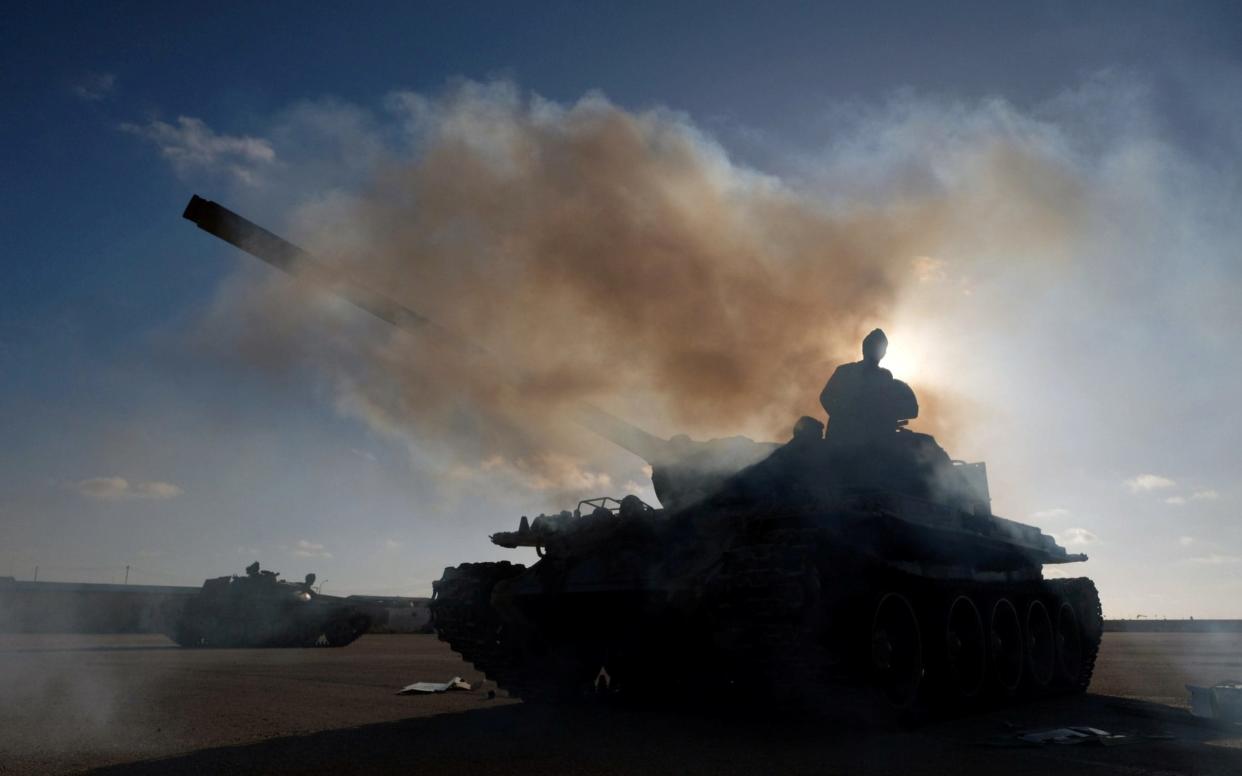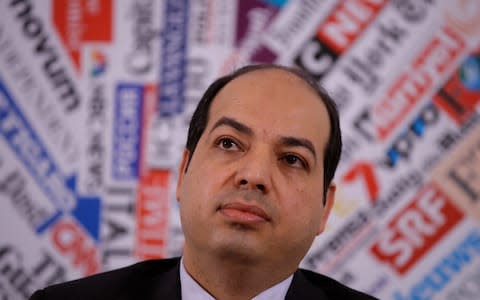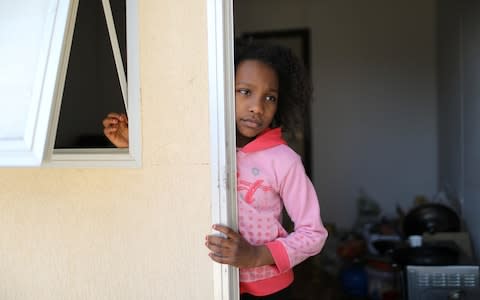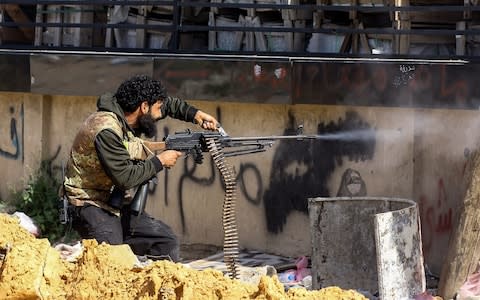UK calls for immediate ceasefire in Libya amid diplomatic divide over Haftar offensive

British diplomats have circulated a draft resolution to members of the United Nations Security Council demanding a ceasefire in Libya.
The move follows nearly two weeks of diplomatic deadlock over how to respond to violence that has seen at least 170 people killed and displaced more than 18,000 people.
General Khalifa Haftar's self-styled Libyan National Army launched an assault on Tripoli, the seat of the country's UN-recognised Government of National Accord, on April 4, saying it wanted to clear out "terrorists" and unaccountable militias
But LNA troops have become bogged down in fighting against forces loyal to prime minister Fayez al-Serraj's government in the city's southern outskirts, raising fears of a prolonged Syrian-style civil war.

Representatives of the 15-member body were due to meet to discuss the British proposals on Tuesday evening. A diplomatic source said there would "hopefully" be an agreement on Wednesday.
The Security Council informally called for an end to fighting on April 5, but progress on a formal resolution stalled amid disagreements over attribution of blame.
Russia has reportedly objected to a specific reference to the LNA, while the US has insisted Gen Haftar's forces must be referenced in the text.

The UK draft text expresses "grave concern at military activity in Libya near Tripoli, which began following the launching of a military offensive by the LNA... and threatens the stability of Libya."
Yesterday Libya's deputy prime minister warned 400 Islamic State of Iraq and the Levant (Isil) terrorists held in prisons in the country could escape in the chaos created by fighting between rival forces and try to reach Europe to carry out attacks.
Ahmed Maiteeq said the former IS fighters are held in jails in Tripoli and the western coastal city of Misrata could mingle among migrants and refugees fleeing the fighting to cross the Mediterranean to Italy in boats arranged by smuggling gangs.
He warned that up to 800,000 migrants in Libya and neighbouring countries could take advantage of the fighting and try to cross the Mediterranean.

"With the ongoing war in Libya, hundreds of thousands of migrants could easily reach European shores," he told the Foreign Press Association in Rome.
"But even worse may happen. Today we have 400 prisoners of Isis between Tripoli and Misrata.”
Fayez al-Sarraj, the prime minister of the UN-backed government, also warned that 800,000 people could try to reach Europe.
Nearly 7,000 migrants are trapped in government-run detention centres in Tripoli, the IOM said.
Jalel Harouchi, a Libya watcher at the Clingendael Institute think tank, said a UN resolution was unlikely to end the fighting because several permanent members of the Security Council, including France, Russia, and the US, either favour or are reluctant to rein in Gen Haftar.
"You're only left with Britain that could show an authentic proposition to promote some kind of of a cease fire," he said. "I don't expect anything to materialise on the ground."

